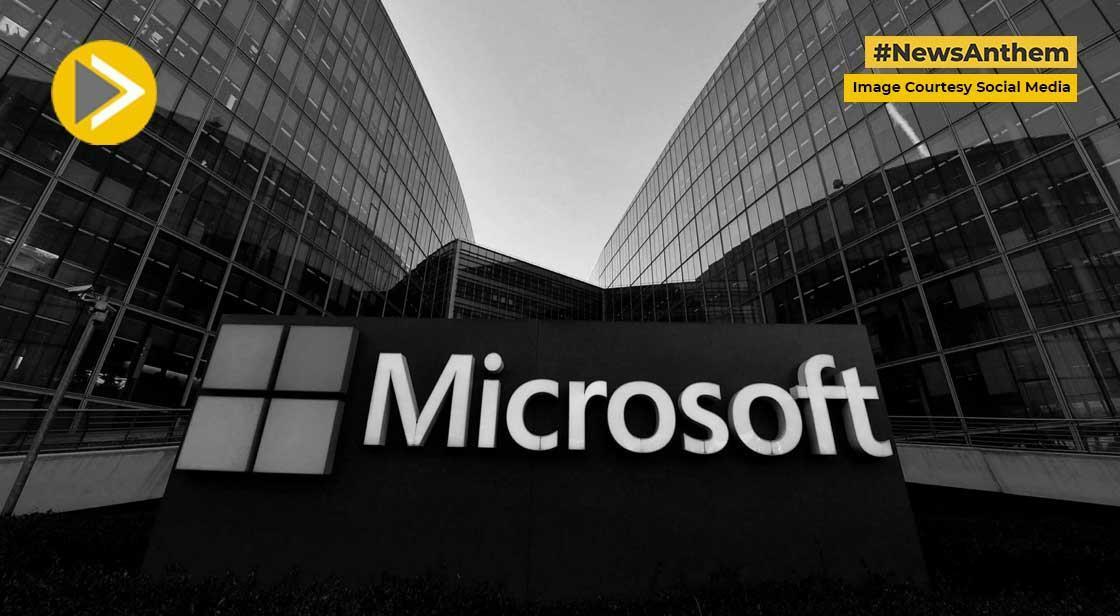Microsoft Reveals Jobs Most Exposed to AI Disruption: Writers, Sales, PR Roles at High Risk

News Synopsis
Artificial Intelligence (AI) is ushering in a transformative phase in the job market, much like how motors, computers, and industrial automation reshaped employment during previous revolutions. With generative AI tools like chatbots becoming more sophisticated, the question of which jobs are most likely to be automated has gained urgency.
While debates around AI’s impact persist—some believe AI will mostly affect white-collar professionals, others argue upskilling can cushion the blow—Microsoft has taken a data-driven approach to clarify the picture. Its newly released study offers specific insights into which professions face the greatest risk from AI technologies.
Microsoft’s AI Applicability Study: Key Findings
Microsoft’s research division analyzed 200,000 anonymized conversations between users and its Bing Copilot tool to assess how AI capabilities align with real-world job tasks. The company introduced an AI applicability score, a measure of how effectively current AI can perform duties across various occupations.
“Our study explores which job categories can productively use AI chatbots. It introduces an AI applicability score that measures the overlap between AI capabilities and job tasks, highlighting where AI might change how work is done, not take away or replace jobs. Our research shows that AI supports many tasks, particularly those involving research, writing, and communication, but does not indicate it can fully perform any single occupation,” said Microsoft senior researcher Kiran Tomlinson.
Top 40 Jobs Most Likely to be Disrupted by AI
Roles involving communication, research, content generation, and data processing show the highest AI applicability. These jobs heavily depend on verbal and written interactions, making them prime candidates for AI intervention.
Highly Impacted Professions Include:
-
Interpreters and Translators
-
Historians
-
Sales Representatives of Services
-
Writers and Authors
-
News Analysts, Reporters, Journalists
-
Technical Writers
-
Editors
-
Public Relations Specialists
-
Data Scientists
-
Web Developers
-
Management Analysts
-
Political Scientists
-
Economists (Postsecondary Teachers)
-
Customer Service Representatives
-
Telemarketers
-
Proofreaders and Copy Markers
-
Archivists
-
Advertising Sales Agents
-
Market Research Analysts
(For the full list of all 40 high-risk jobs, see below.)
According to the findings, jobs involving research, communication, and information processing are among the most susceptible to AI disruption. Knowledge-based roles such as journalists, political scientists, editors, data scientists, and management analysts rank high on the applicability score.
Microsoft clarified that the study is not necessarily a prediction of job loss, but rather a signal that AI is poised to reshape how these roles are performed, potentially reducing human involvement in repetitive or information-based tasks.
Education Level Doesn’t Guarantee AI Immunity
The study also delivers a stark warning for knowledge workers with advanced degrees. Contrary to popular belief, higher education does not safeguard roles from AI.
“In terms of education requirements, we find higher AI applicability for occupations requiring a Bachelor’s degree than occupations with lower requirements.”
This includes business professors, economists, and statisticians—all of whom are now increasingly vulnerable to AI-assisted task replacement.
Top 40 Jobs Least Likely to be Affected by AI
On the flip side, professions requiring physical labor, human interaction, or the operation of machinery scored the lowest on Microsoft’s AI applicability scale. These jobs are not easily performed by software or machines.
AI-Resistant Professions Include:
-
Nursing Assistants
-
Phlebotomists
-
Roofers
-
Tire Repairers
-
Dishwashers
-
Logging Equipment Operators
-
Massage Therapists
-
Medical Equipment Preparers
-
Floor Sanders and Finishers
-
Water Treatment Plant Operators
-
Cement Masons
-
Dredge Operators
-
Orderlies
-
Maids and Housekeeping Cleaners
-
Gas Pumping Station Operators
(Full list provided at the end of this article.)
These occupations often require manual dexterity, emotional intelligence, or real-time decision-making, making them less likely to be impacted in the immediate future.
What the Future Holds
Microsoft researchers acknowledge that even these seemingly AI-resistant roles might not stay safe forever. As AI and robotics evolve, some level of automation could extend to hands-on roles, particularly in manufacturing, logistics, and healthcare.
Full List of Jobs Most Likely to Be Affected by AI
(Top 40 AI-Exposed Jobs):
-
Interpreters and Translators
-
Historians
-
Passenger Attendants
-
Sales Representatives of Services
-
Writers and Authors
-
Customer Service Representatives
-
CNC Tool Programmers
-
Telephone Operators
-
Ticket Agents and Travel Clerks
-
Broadcast Announcers and Radio DJs
-
Brokerage Clerks
-
Farm and Home Management Educators
-
Telemarketers
-
Concierges
-
Political Scientists
-
News Analysts, Reporters, Journalists
-
Mathematicians
-
Technical Writers
-
Proofreaders and Copy Markers
-
Hosts and Hostesses
-
Editors
-
Business Teachers, Postsecondary
-
Public Relations Specialists
-
Demonstrators and Product Promoters
-
Advertising Sales Agents
-
New Accounts Clerks
-
Statistical Assistants
-
Counter and Rental Clerks
-
Data Scientists
-
Personal Financial Advisors
-
Archivists
-
Economics Teachers, Postsecondary
-
Web Developers
-
Management Analysts
-
Geographers
-
Models
-
Market Research Analysts
-
Public Safety Telecommunicators
-
Switchboard Operators
-
Library Science Teachers, Postsecondary
Full List of Jobs Least Likely to Be Affected by AI
(Top 40 AI-Resistant Jobs):
-
Phlebotomists
-
Nursing Assistants
-
Hazardous Materials Removal Workers
-
Helpers—Painters, Plasterers
-
Embalmers
-
Plant and System Operators (All Other)
-
Oral and Maxillofacial Surgeons
-
Automotive Glass Installers
-
Ship Engineers
-
Tire Repairers and Changers
-
Prosthodontists
-
Helpers—Production Workers
-
Highway Maintenance Workers
-
Medical Equipment Preparers
-
Packaging and Filling Machine Operators
-
Machine Feeders and Offbearers
-
Dishwashers
-
Cement Masons and Concrete Finishers
-
Supervisors of Firefighters
-
Industrial Truck and Tractor Operators
-
Ophthalmic Medical Technicians
-
Massage Therapists
-
Surgical Assistants
-
Tire Builders
-
Helpers—Roofers
-
Gas Compressor and Gas Pumping Station Operators
-
Roofers
-
Roustabouts (Oil and Gas)
-
Maids and Housekeeping Cleaners
-
Paving Equipment Operators
-
Logging Equipment Operators
-
Motorboat Operators
-
Orderlies
-
Floor Sanders and Finishers
-
Pile Driver Operators
-
Rail Track Maintenance Operators
-
Foundry Mold and Coremakers
-
Water Treatment Plant Operators
-
Bridge and Lock Tenders
-
Dredge Operators
Conclusion
Microsoft’s research sheds critical light on how AI is poised to transform—not necessarily eliminate—many jobs, especially those centered on communication, research, and information handling. While manual jobs remain safe for now, the message is clear: adaptability, reskilling, and embracing AI tools will be key for future-proofing careers.
You May Like









